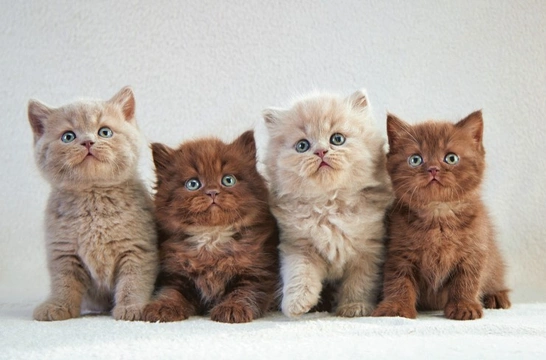
Six health essentials that you should monitor in your kittens first few weeks of life
If you are planning to breed from your cat or if for any other reason you find yourself in the position of raising a litter of kittens; perhaps because you unwittingly or willingly adopted a pregnant queen, or are helping to care for a litter of kittens or a lone kitten for any other reason, but it is a big responsibility, however you came to end up there.
Mother cats will take care of their own kittens without any problems in the vast majority of cases-although it is worth keeping a special eye on flat-faced breeds like the Persian, to ensure that the kittens can latch on to suckle properly-but it is also of course wise for the human parents of young kittens to look out for any problems and know the warning signs that something may be amiss.
In this article, we will look at six health and wellness essentials that you should monitor carefully in your kittens during their first few weeks of life, in order to identify any problems promptly and give your kittens the best possible start! Read on to learn more.
Rejection
One of the first things that you need to keep an eye out for during the early days of your kittens’ life is the potential for rejection by their mother. While this does not happen often, in some cases the queen of the litter may refuse to take care of all of her litter, or single one kitten out for rejection, often the weakest one or one that is sickly.
If this does happen then there is no way to force the queen to care for the litter or individual in question, and so you will need to potentially take the kitten or kittens away from their mother, and hand-rear them.
Seemingly inexplicable rejection of one individual kitten can also be an early warning sign that something is wrong with that kitten that you might not otherwise be aware of until later on, and so this is something that you should check very thoroughly as well.
Eyes opening
Your kittens will of course be born with their eyes closed, and they will only begin to open when they are about two weeks old. In order to open their eyes up, the queen will groom her kittens by licking their faces, and over time the rough tongue will break the fine membrane over the eyelids, allowing their eyes to open up! It is normal that one eye will open before the other and that the full process can take a couple of days, but keep an eye on your kittens to make sure that their eyes are opening up, and that everything is as it should be.
Eating
Your kittens will rely on milk from their queen for all of their nutritional requirements during their early days, and not only does this provide vital nutrients, but also, the benefits of the queen’s immune system, to help to keep the kittens healthy.
Make sure that all of your kittens are able to latch on and suckle and that they are all getting enough food-keep an eye out for smaller kittens being pushed out of the way when they need to eat!
Gaining weight
As well as checking that your kittens are eating, they should also be gaining weight at a steady pace during their early weeks as well! Weigh each kitten at birth and keep weighing them regularly to check that they are all gaining weight and not having any problems, and that they are all developing normally.
Toileting
Very young kittens need help from their mothers to toilet, and the queen has to lick the rear end of each kitten to stimulate them to pass urine and faeces. Make sure that each kitten is toileting normally, and keep an eye out for potential constipation or any problems that might come up along the way. You can help toileting along in a kitten that is having a minor problem if you need to, by getting a slightly damp face cloth and gently massaging their rear end, which simulates the action of the queen, and stimulates toileting.
Health
Finally, making sure that your kittens are healthy, well and have the best possible start to life also requires some vigilance, and keeping an eye on all of the indicators above can help you to ensure this. But it is also wise to keep an eye on the big picture when it comes to your kitten’s health too, and check each kitten over each day and make sure that they are all developing normally, and that one kitten is not getting left behind or failing to thrive.
There will usually be one kitten that is a little smaller or more delicate than the others, so keep a special eye on this one, and make sure that they develop alongside of the others!



